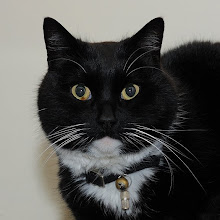The book subject of this post is titled The Genealogy of the Regiments of the British Army : Cavalry, and is written by Anthony Baker. It was published in 1999 by The Military Press, and available in both paperback and hardcover editions. This book is the first in a series on the genealogy of the British Regiments.
Looking at the title and the year of publication (1999) one might think that this will be a great book, correcting mistakes and omissions made by earlier writers and presenting some new information. The format is impressive (A4) with several fold-out tables.
However, this book is a bit of a disappointment unfortunately.
First of all, there is no list of references used by the author! With such a complicated area, and so many contradicting sources I think this is unforgivable. This way a reader is not able to check details, of consult sources for further research.
The fold-out tables have been mentioned, and at a glance they look like a nice addition. However, the tabels' composition and contents is a bit uneven. The past 350 years have been divided in strange chunks. In particular, the periods 'before 1691' and '1691-1750' are at least a little odd. Why 1691, and not 1697 (because of army reductions) or 1714 (again because of reductions, and succession of the Hanoverians)?
A positive point is that Baker didn't cut on space for presenting regiments. For example, the Royal Dragoons get four pages, until their amalgamation in 1968. Information details service of the regiment, nicknames, battle honors, mottos, music, etc. I have not enough knowledge of most of those subject to comment. However, an important omission is the absence of a succession of regimental colonels! Why spending so much space on service details, honours and clothing, but not on regimental colonels, as the latter were and are an important part of the regiment and its history. In the few instances that a colonel is mentioned, he seldom uses the full name of the colonel. The index on named regiments therefore contains a reference to the Duke of Albemarle, and to Albemarle. The latter refers to a regiment commended by the 2nd Duke of Albemarle, the son of the 1st Duke who was of course George Monck. Suffice to say this is rather sloppy.
Furthermore Baker introduces a number of ghost regiments: the 9th - 14th Regiments of Dragoons, raised apparently in 1697 and disbanded in 1713. He probably copied this from someone. These regiments didn't exist. First of all, in 1697 the army was subject to reductions so it is hardly likely that six regiments would have been formed. Secondly, regiments were in general not known by a number in those days, but by the name of their colonel or some honorary name; only the troops of horse guards were numbered as were the regiments of foot guards on occasion. As a third point one can find no reference of these regiments in contemporary accounts.
To summarize, I would rate this book a 6 out of 10. The book contains many details other than regimental lineage, and Baker can be praised for that part. However, on the lineage part itself Baker has been really sloppy and inconsistent. This makes me also doubt the correctness of the non-lineage details. The lack of a literature list is not helping much in a positive way as well.
All in all, a book that may appeal the novice, and will be of some value regarding the non-lineage details. But it should be consulted with care.
Subscribe to:
Post Comments (Atom)




3 comments:
The Journal for the Society of Army Historical Reasearch did publish a succession of Colonels so the info is not hard to come by so no excuse. Alsoin 1986 Greenhill books re-printed Chicesters massive "Records and Badges of Every regiment and Corps in the British Army 1900 which includes commandin officers of thepresent reign - ie Victoria. So perhaps I won't be buying the genealogy as it seems to miss out quite a lot.
Hi Andy,
Thank you for your comment. For what you get, the books are way too expensive in my opinion.
Weinand I don't thin you can get better in a single volume than the Chichester each regiment as in 1900 has a potted history battle honours badges etc- of course its no good for all the modern amalgamations but its a fine starting point.
Post a Comment